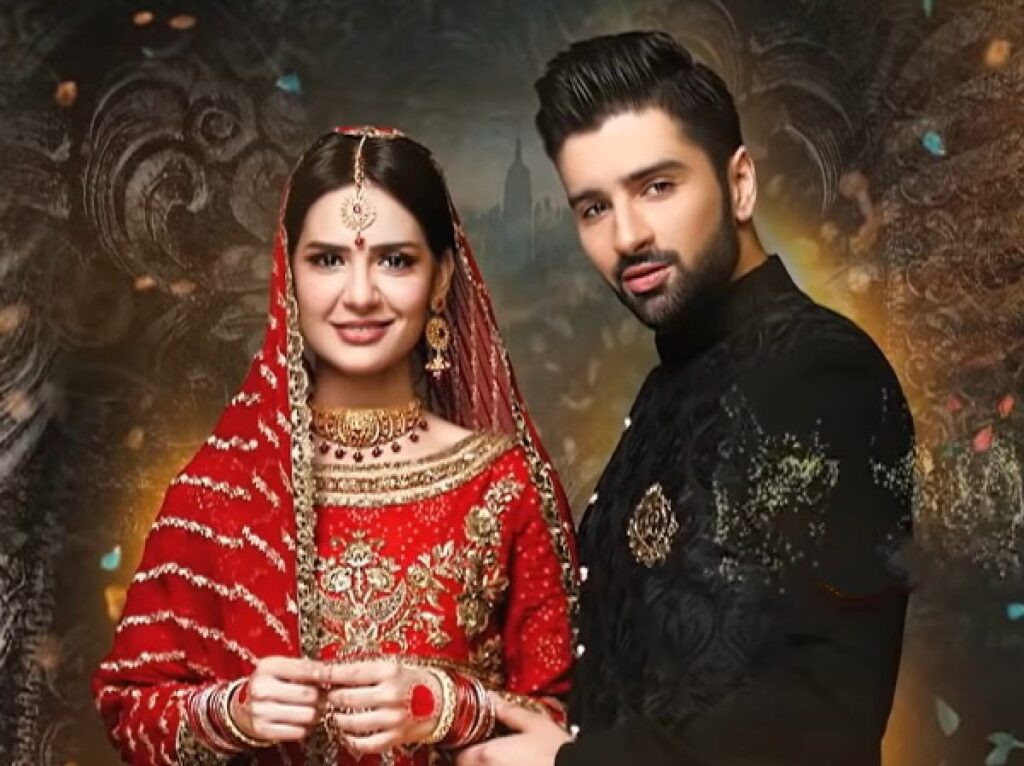“Mujhe Vida Kar” is a dramatic, over-the-top take on a very serious, very real issue that is still prevalent in large sections of South Asian society today. Of course, this issue can be seen as one of two things – a direct discussion on the concept of jahaiz and taking money from a woman’s family OR the much larger issue of in-laws lacking empathy for their daughter-in-law due to society preaching women are “parai” in their own families. Starring Saboor Aly, Madiha Imam, Muneeb Butt, Haaris Waheed, Raza Talish, Tara Mehmood, Shaista Jabeen, Saba Hameed, Shabbir Jan, Sana Askari and others in prominent roles, the story has been written by Samra Bukhari and directed by Saqib Zafar.
Women are taught to compromise. “Ghar aurat banaati hai” (A woman makes the home) – this is the concept women are taught from a young age and it is heaped on in the form of advice when women struggle with bad marriages. Sadia (Saboor Aly) does her best to make her marriage work despite the lack of respect she receives not only from her in-laws, but also from her own husband. Tauseef is a reflection of his mother and while he may have initially had some soft tendencies, his mother’s influence has made its mark on both her son and her daughter. Living with this selfish trio, Sadia is at her breaking point when she finds Tauseef planning to marry his now-divorced Canadian cousin. A fight erupts and Tauseef and his family decide they’re done with Sadia, Tauseef promising to divorce her when he returns home from work. While Safeer (Raza Talish) and Sadia’s mother (Tara Mehmood) do their best to control the situation, Sadia tells them it’s of no use talking to such rigid individuals. And yet, just as Sadia’s mother in law and sister in law are at the height of their arrogance, news arrives of Tauseef’s death in an accident.
The tables have turned and how. Sadia’s in-laws are now reliant upon her. Now without a son, they realize that they are alone and need Sadia to take care of them. But while Sadia agrees to wait out her “iddat’ in their home, their manipulative nature cannot remain hidden for long. Sadia, however, is no longer willing to take their abuse though, emerging a much stronger Sadia, and makes it clear that she has no intention on waiting on them or serving them when they have two capable hands and can do their own work. Saboor Aly is doing a wonderful job as Sadia, particularly now post Tauseef’s death as Sadia is beginning to realize just how badly she has been treated all along. And while she endured it for the sake of saving her family, she no longer has to do that. Unfortunately, Sadia simply comes from too good a family, a family that is so naïve and pure that they don’t’ recognize the ugliness in others. On her in-laws insistence, it’s possible that her family will convince Sadia to stay with her in-laws. But why would they do this? That’s the question.
On the other end, while Rida (Madiha Imam) has gotten her support back in the form of Usman (Muneeb Butt), the Usman she has gotten back is not the man she married. Without a job and his spirit crushed by his time in jail and deportation, Usman is in a low position Adding fuel to the fire are his conniving parents (Shabbir Jan and Saba Hameed), who not only poison his mind against Rida, but also manage to convince him that they gave the wedding money to Aniq (Haaris Waheed) for Rida’s mother’s operation – which is not true. This is another nail in the coffin of a new, once-blossoming marriage, tainted by manipulation and deceit. Usman’s behavior grows more and more agitated with Rida while his parents do their best to keep Rida working all day, unable to spend any time with Usman. Rida’s parents have also started “extorting” money from Aniq, claiming that he needs to provide for Rida until Usman gets a job. Unfortunately, Aniq is too “pure,” just like Sadia’s family, and he gives the money to Rida’s father-in-law instead of to Rida herself, which is ridiculously frustrating! The only respite in this scenario are the characters of Azhar and Farheen (Sana Askari), who are intelligent, loving individuals. It’s wonderful to see Farheen offer Rida emotional support and Azhar is also a character worth applauding, an intelligent man who not only cares for his wife, but also recognizes his parents’ true nature.
“Mujhe Vida Kar” is a highly frustrating show, a show that tests the patience of the audience in many ways. But this is, perhaps, because it’s holding a mirror to society and giving us a glimpse of the ugliness we know exists, but don’t want to acknowledge. In the end, the only acceptable ending will be to have Rida marry Safeer and Sadia marry Aniq. Nothing less will be accepted and one can only hope Rida leaves Usman and his toxic family behind – and both girls get the happiness they deserve.
